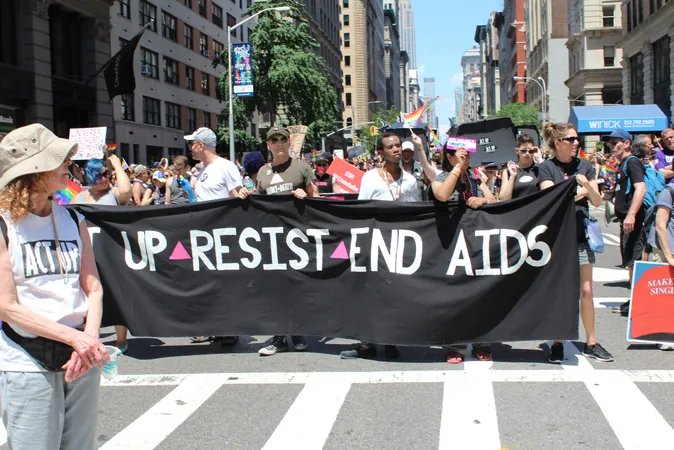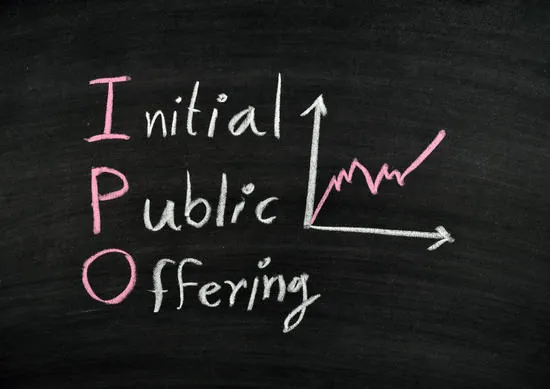
Could HIV Make a Dangerous Comeback? Here’s What You Need to Know!
2025-01-23
Author: Wei
Introduction
In recent years, significant strides have been made in HIV science, offering a glimmer of hope in the fight against this persistent pandemic. Although we still lack a definitive vaccine or a complete cure, an innovative long-acting injectable drug has emerged, providing protection against HIV for up to six months with just a single dose. This breakthrough could be revolutionary in addressing a crisis that continues to claim a life every minute.
Emerging Concerns
However, a troubling landscape is emerging globally as regressive governance and rising populism threaten these hard-earned advancements in public health. In the United States, the Biden administration's bipartisan President’s Emergency Plan for AIDS Relief (PEPFAR), which has been credited with saving approximately 26 million lives over the last two decades, faces growing scrutiny and potential cuts. The program was originally launched to prevent the AIDS pandemic from destabilizing lower- and middle-income countries, but its future now hangs in the balance.
Funding Challenges
The National Institutes of Health (NIH) is under increased pressure regarding its funding of vital HIV research. This scrutiny comes amid an alarming climate where some policymakers are challenging decades of peer-reviewed scientific findings, in a move that could jeopardize essential advancements.
Political Implications
Adding to the concern, Robert F. Kennedy Jr.—a controversial figure known for his skepticism towards vaccines—has been nominated as the next U.S. health secretary. His long-standing denial of the established link between HIV and AIDS raises alarm bells about future HIV policy and research funding. The dismissal of substantial scientific evidence in favor of unfounded opinions poses a significant threat, especially if it takes root at governmental levels.
Human Rights Violations
Human rights violations remain a formidable barrier to effective HIV action, particularly in regions most affected by the epidemic. In a recent decision, Uganda upheld one of the world's most severe anti-LGBTQ+ laws, and half of the 67 countries that criminalize same-sex relationships are located in sub-Saharan Africa, where HIV rates are alarmingly high. Countries like Russia, with strict drug laws and harsh penalties against LGBTQ+ communities, are witnessing the world's fastest-growing HIV epidemic.
Potential for Future Pandemics
These developments risk rolling back years of progress, which could lead to the emergence of future pandemics. Recent outbreaks of Mpox and H5N1 avian influenza highlight the pressing need for vigilance; HIV could become one of the next significant global health threats.
Strategies for Compromise
There is, however, a strategy to combat this reversal and potentially eradicate HIV for good:
1. Uphold Human Rights
The protection of human rights is not merely an ideological position; it is a proven public health strategy. Discriminatory laws and punitive policies effectively undermine HIV prevention and treatment. Legal reforms are urgently required to protect vulnerable populations, including LGBTQ+ individuals, sex workers, migrant workers, and people who inject drugs.
2. Safeguard Civil Society
The enduring lesson from four decades of HIV advocacy is that effective public health efforts necessitate an empowered civil society. Grassroots activism has been instrumental in shaping the global HIV response, from health policies to trial designs. Civil society organizations often bridge gaps in public health services, particularly for marginalized groups.
3. Depoliticize Health
Despite lessons from the COVID-19 pandemic, international negotiations for a new pandemic treaty have faced obstacles, highlighting geopolitical tensions that threaten global health equity. As evidenced by the return of the Global Gag Rule—a policy that restricts U.S. funding for organizations that provide abortion services—public health efforts are often entangled in unrelated political agendas. Such restrictions not only hinder HIV response but can have catastrophic effects, contributing to new infections.
4. Enhance International Cooperation
Funding for the Joint United Nations Programme on HIV/AIDS (UNAIDS) has plummeted, with current resources less than half of what they were in 2015. Organizations like PEPFAR and the Global Fund have saved millions of lives and must be protected from budget cuts to ensure sustainable health outcomes.
Conclusion
As a community, we must unite to challenge anti-human rights movements and vigorously defend science as the cornerstone of our societal progress. The alternative could lead us back into a cycle of regression and suffering. To secure a future where HIV is no longer a threat, global collaboration, human rights protection, and a commitment to scientific integrity are paramount. The choice is clear: we must act decisively to protect vulnerable populations and defend the gains we've achieved against this persistent and deadly virus. If you wish to stay informed and contribute to health discussions that shape our world, be part of the dialogue—because together, we can overcome these challenges.


 Brasil (PT)
Brasil (PT)
 Canada (EN)
Canada (EN)
 Chile (ES)
Chile (ES)
 Česko (CS)
Česko (CS)
 대한민국 (KO)
대한민국 (KO)
 España (ES)
España (ES)
 France (FR)
France (FR)
 Hong Kong (EN)
Hong Kong (EN)
 Italia (IT)
Italia (IT)
 日本 (JA)
日本 (JA)
 Magyarország (HU)
Magyarország (HU)
 Norge (NO)
Norge (NO)
 Polska (PL)
Polska (PL)
 Schweiz (DE)
Schweiz (DE)
 Singapore (EN)
Singapore (EN)
 Sverige (SV)
Sverige (SV)
 Suomi (FI)
Suomi (FI)
 Türkiye (TR)
Türkiye (TR)
 الإمارات العربية المتحدة (AR)
الإمارات العربية المتحدة (AR)